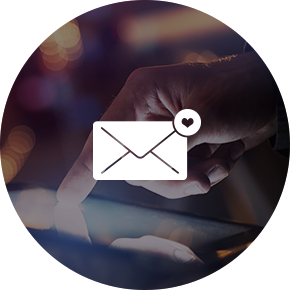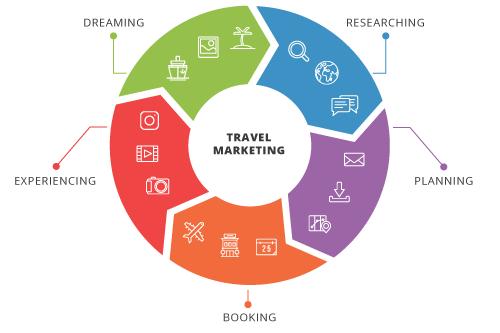
Tips, secrets and insider knowledge about reaching the modern traveler with Inbound Marketing.

The tourism industry is growing, but many destination marketers aren't growing with it. The market is there, there’s plenty desire and means to experience the attractions, the digital channels to reach it are available, yet somehow it’s more challenging than ever to become the destination of choice—what gives?
The missing piece to the equation above is that consumer behavior has drastically changed. Modern leisure travelers have completely different research and purchasing behaviors when it comes to planning and booking travel; different even than a few years ago.
This modern digital journey is now commonplace for every traveler, and therein lies an incredible opportunity for travel marketers.
At this point you’re probably thinking, “We’re already using social media, digital advertising, video, and email marketing—we know.”
Being present and active on various online channels is good, but it’s only the price of admission. The magic (aka ROI) happens when you’re not only present on the right channel at the right time, but provide exceptional value, exceed expectations, and create a frictionless path to conversion.
You have the message and the medium(s)—now it’s time to map them to your buyer’s journey to create radical relevance with your audience.
But how?


Inbound marketing is designed to draw your customers to you, turning your brand into a powerful magnet. Instead of broadcast-style marketing tactics that aim to reach a huge audience at scale and hope for the best, inbound targets your ideal customers by creating content they want. It’s digital, it’s social, and it’s data driven.
Inbound marketing is uniquely suited to buyers who have a lengthy research process as part of their sales cycle—a perfect match for destination marketing.
The difference between inbound marketing and, well, everything else, is that it is consumer driven, not just product/service driven.
This means that all content and channel decisions are made based on how you can best serve the consumer at the specific stage of her buying journey.
By creating value (for free!) at every stage of the consumer journey you build brand awareness and trust with your target, all while earning permission to market to them in the future. And when they’re ready for the next step in their buying process, you’ll be there to help them with that too ;)
Let’s face it—our marketing campaigns live and die by the revenue created from consumers—why don’t we start acting like it?


Inbound marketing requires a lot of effort and commitment—if you choose this path, you’ll likely create more content and conversions than ever before. But it’s worth it.
Brands that commit to inbound marketing see:
Think about your own research habits and how you would like to be sold to. The Golden Rule of “Treat others how you want to be treated” can pay off big time, but it takes strategy, creativity, and technology to do it right.
This is where we can help.

Windfarm provided a comprehensive inbound marketing strategy for promoting a high-profile sporting event taking place in Sacramento. Our goals were simple, sell tickets, and drive awareness. Their strategy included persona profiles that drove their integrated tactical plans of email marketing, social marketing promotion, as well as display and PPC campaigns. The team (and it was a team) was responsive and easy to work with. Our goals were acheived and I highly recommend them.
Sonya Bradley, CMO Visit Sacramento